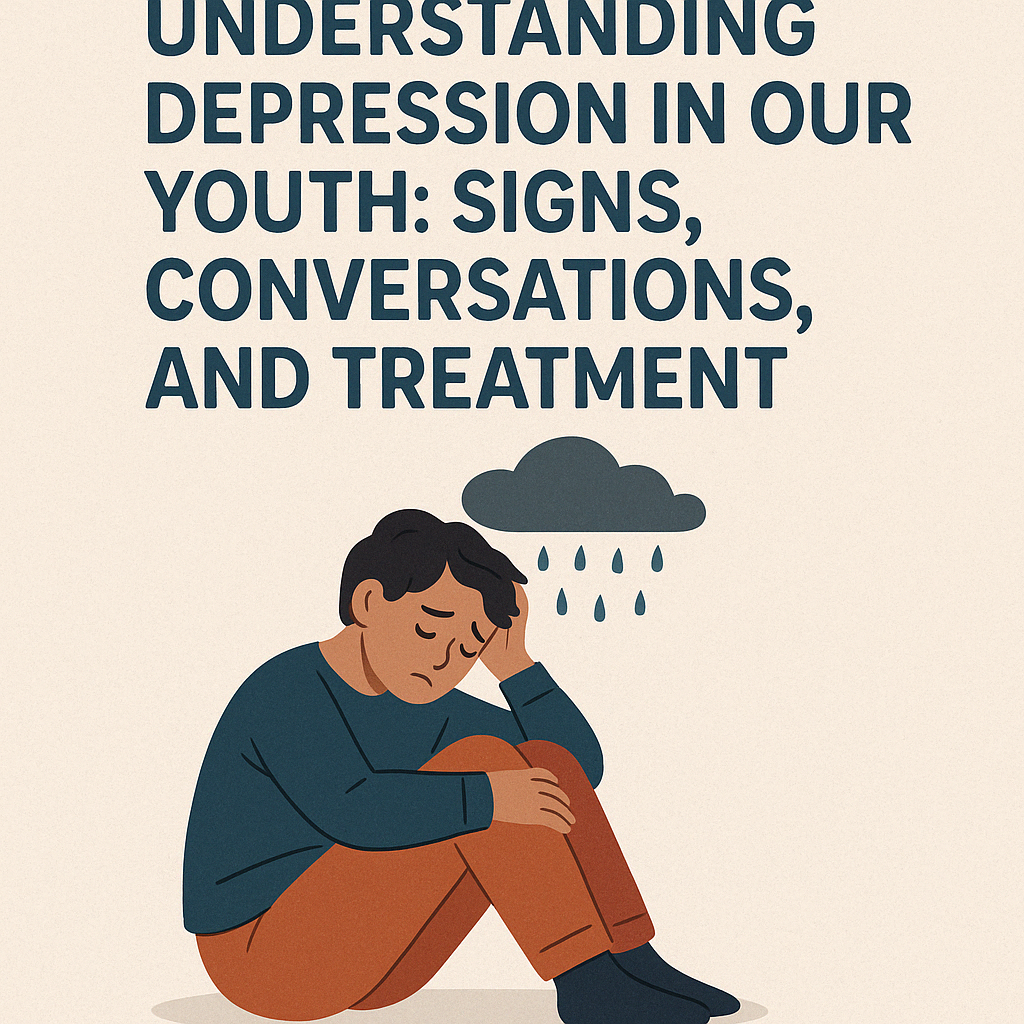Depression in young people is rising fast. Knowing how to spot it, talk about it, and get help can save lives. Early support and the right psychiatrist treatment for depression can lead to real recovery.
Why Spotting Youth Depression Early Matters
Youth depression often hides behind smiles. It can look like moodiness or laziness. But deep down, something serious may be going on. Early warning signs shouldn’t be ignored. The sooner help starts, the better the chance for healing.
Mental health issues can show up in many ways. A teen might withdraw from friends, stop doing things they love, or seem tired all the time. Sometimes, they just seem “off.” Trust your gut. If something feels wrong, it might be.
Parents, teachers, and peers play key roles. They are often the first to notice a change. Open eyes and kind hearts can make all the difference.
Signs of Depression in Teens and Kids
Depression doesn’t always look the same in everyone. Still, there are common signs that point to trouble:
- Constant sadness or irritability
- Big changes in sleep or eating habits
- Loss of interest in hobbies or social life
- Low energy and fatigue
- Trouble focusing or making choices
- Feeling worthless or hopeless
- Talking about death or self-harm
These signs can last for weeks or months. That’s when it’s time to act. A psychiatrist near me for depression can give a proper diagnosis and start a care plan.
Talking to Your Child About Depression
Starting the conversation can feel scary. But it’s one of the most loving things you can do. Pick a quiet time. Listen more than you speak. Avoid judgment or trying to “fix” it right away.
Here’s how you can begin:
- “I’ve noticed you don’t seem like yourself lately. Want to talk?”
- “It’s okay to feel down sometimes. But I’m here for you if it feels too heavy.”
- “I love you. You’re not alone in this.”
Let them know depression is not their fault. They’re not weak. They’re struggling, and that’s okay. You’re there to support them, not shame them.
Sometimes kids shut down. That’s normal. Stay calm. Keep the door open for future talks. Even if they don’t talk today, they know you care.
When to Seek Professional Help
There’s no shame in asking for help. In fact, it shows strength. If your child’s symptoms are lasting, worsening, or affecting their daily life, it’s time to look for help.
This is where the best depression psychiatrist near me comes in. A trained psychiatrist can offer medical treatment, therapy, or both. They can give hope when things feel hopeless.
You don’t need to wait for a crisis. The earlier the treatment, the better the outcome. A psychiatrist will help guide your family through every step.
What to Expect From Psychiatrist Treatment for Depression
A psychiatrist treatment for depression usually starts with a full assessment. They will ask about your child’s thoughts, feelings, and behaviors. They might also talk to you as a parent or caregiver.
Treatment might include:
- Therapy: Talking with a licensed therapist helps young people understand their emotions and build coping skills.
- Medication: If needed, medication can balance brain chemicals and ease symptoms.
- Lifestyle support: Changes in sleep, diet, and exercise can play a big role in healing.
Each child is different. The treatment plan will be tailored to their needs. Regular check-ins will track progress and adjust as needed.
Finding the Best Depression Psychiatrist Near Me
It’s okay to shop around when looking for care. You want someone who connects well with your child and understands their needs.
Start with these steps:
- Ask your family doctor for referrals
- Search online for a psychiatrist near me for depression
- Read reviews or ask for feedback from other parents
- Check qualifications and experience in child or teen mental health
Many clinics now offer virtual appointments, making access easier. Don’t be afraid to ask questions before choosing someone. This is about trust.
How Parents Can Support the Healing Process
Treatment doesn’t stop at the psychiatrist’s office. Your support at home matters deeply. Here’s what you can do:
- Create a safe, calm space at home
- Stick to a healthy routine
- Encourage open conversations without pressure
- Praise small steps forward
- Be patient – healing takes time
Also, take care of your own mental health. Supporting a child with depression can be hard. It’s okay to reach out for your own support too.
Breaking the Stigma Around Mental Health
Many families stay silent because of fear or shame. But depression is a health condition—just like asthma or diabetes. We must treat it with the same care and respect.
Talking openly about mental health breaks stigma. It shows our kids that it’s okay to ask for help. Let them know that struggling doesn’t make them less. It makes them human.
Together, we can change the story around youth depression.
Final Thoughts
Depression in young people is real, but so is recovery. It starts with awareness, empathy, and action. If you notice signs, speak up. Be there. Seek professional help. And remember, the psychiatrist treatment for depression can be life-changing.
You don’t have to do it alone. Support is out there—and so is hope.









